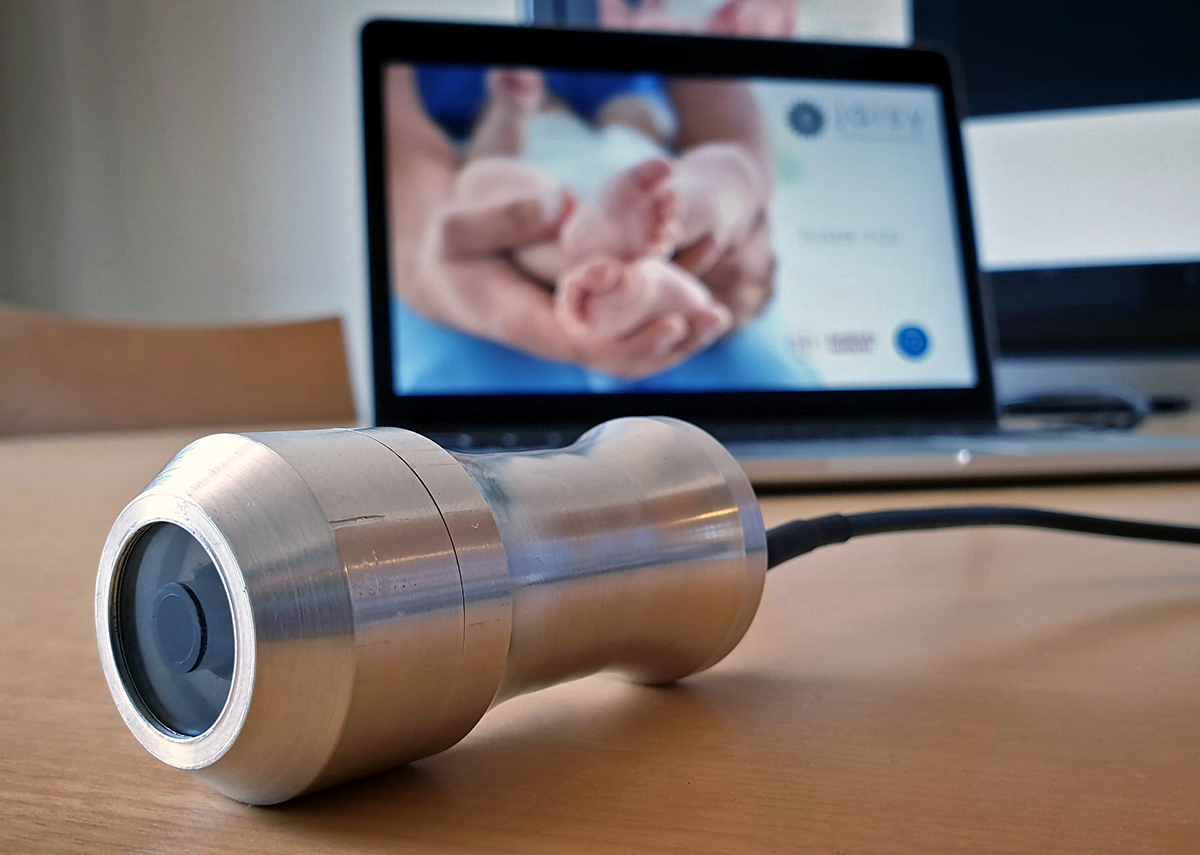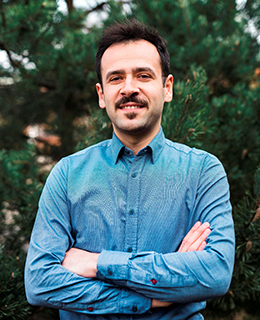The jaundice meter for babies

Every year some 135 million children are born. Well over half, 80 million, suffer from jaundice. This medical condition can, if left untreated, lead to neurological damage in the new-borns and, in the worst case, fatality. Now researchers at the KTH Royal Institute of Technology have developed a jaundice meter which, in addition to being accurate, is also significantly less expensive than the competitors’ technology.
Hasan Basri Celebi, one of the researchers behind the technology, worked with jaundice meters even before he arrived at KTH. That’s when he realised that spectrometer technology was a far too expensive alternative to blood tests. That is because it is specifically blood tests or spectrometers, an optical instrument for splitting up light into its different light waves, which are the two alternative possibilities for diagnosing jaundice.
“Two of the advantages of our technology are that it is neither invasive as a blood test, nor complicated to use. Anyone can measure the presence of jaundice by holding our meter against the skin of a baby. The results are displayed a few seconds after measurement on a smartphone screen,” comments Hasan Basri Celebi.

KTH researchers’ jaundice meter, called Jaisy, is particularly useful in developing countries where too often resources are limited. Partly due to the financial costs when it comes to purchasing technology, and on the other hand, the limited access to hospitals and nurses who can take blood tests.
“Jaisy provides as reliable a diagnosis as the best jaundice meters on the market today. As presently we are at a prototype stage, we have no price tag yet. However the meters now sold on the market cost around SEK 100,000 each, and the manufacturing cost for a Jaisy is below SEK 1,000.”
Savings can also be achieved by relieving burdened regular medical staff as blood tests and these kinds of tests do not need to be performed, and no highly trained personnel are required to make the first diagnosis.
The market for non-invasive jaundice meters is currently estimated at SEK 3 billion. Each year, 50,000 jaundice meters are sold, and the majority of them at a cost of around SEK 100,000 each. Due to the high cost of purchasing equipment, the majority of all jaundice diagnoses are made via blood tests. The cost of such a test is SEK 200 each, and there is an estimated market value SEK 25 billion.
Text: Peter Ardell
For more information, contact Hasan Basri Celebi on 072 - 839 34 78 or via e-mail: hbcelebi@kth.se.
